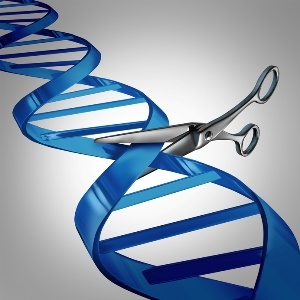
Scientists recently unveiled an improved method of transferring DNA between human egg cells, a technique that aims to create embryos free of their mother's genetic defects.
An array of disorders
Refinements to an existing method known as "pronuclear transfer", sometimes called three-person IVF, greatly reduced the amount of faulty, disease-causing DNA in the lab-produced embryos, they reported in the journal Nature.
The method involves extracting healthy DNA of the mother and father from the nucleus of a fertilised egg. Each egg cell also contains a different type of DNA residing in tiny cell structures called mitochondria.
Sometimes the mitochondrial DNA undergoes mutations which can be transmitted to offspring and can cause an array of disorders.
Read: Some people defy their 'genetic destiny' and sidestep disease
The nuclear DNA is transferred into a donated egg cell with healthy mitochondrial DNA from which the nucleus has been removed.
"(W)e are optimistic that the technique we have developed will offer affected women the possibility of reducing the risk of transmitting mitochondrial DNA disease to their children," said study co-author Mary Herbert of the Wellcome Trust Centre for Mitochondrial Research in England.
Commentators said the study marked significant progress towards a safer form of in-vitro fertilisation (IVF) for women who carry disease-causing mitochondrial mutations.
Estimates vary widely, but about one in 5,000 children is thought to be born with these mutations which can affect the muscles, eye, brain or heart.
There is no effective treatment.
Mitochondria are tiny structures inside our cells which turn sugar and oxygen into energy. They are often referred to as the powerhouses or batteries of our cells.
Mitochondria have their own DNA, which is separate from the DNA within the cell nucleus.
Sometimes, mutations in these genetic codes can cause the mitochondria to malfunction, resulting in organ failure and even death.
Unlike nuclear DNA, which is transferred to offspring by the mother and father combined, mitochondrial DNA is inherited from the mother alone.
Last year, Britain became the first country in the world to legalise pronuclear transfer for women with mitochondrial disorders.
The new study, using over 500 eggs from 64 donor women, showed that small tweaks to the existing procedure can reduce the risk of mutant mitochondrial DNA transferral.
Read: UK plans world's first '3-parent' IVF babies
It worked best to perform the procedure on the day of the egg's fertilisation, not later, the scientists found.
And it was better to freeze the egg of the patient, rather than that of the donor.
Refining the techniques
The embryos, which were not allowed to develop, contained less than two percent of the mutated mitochondrial DNA in the original egg, the authors found. This is below the five-percent threshold considered safe.
The study was an important step, said commentators, but the two-percent level was still no guarantee against disease.
According to Marni Falk of The Children's Hospital of Philadelphia's human genetics division, "There is the chance that even small levels of mutant mtDNA (mitochondrial DNA) can become unpredictably enriched in the developing person over time."
Added Herbert: "Our ongoing research is focused on refining the techniques to further reduce the risk of transmitting disease."
The results of the study will be presented to an expert panel of Britain's fertility treatment regulator, the Human Fertilisation and Embryology Authority, which must decide whether to issue the first licence to a clinic.
Read more:
Scientists question ethics of 'designer babies'
Britain's new gene technology gets the go-ahead
Germany approves genetic testing




 Publications
Publications
 Partners
Partners















